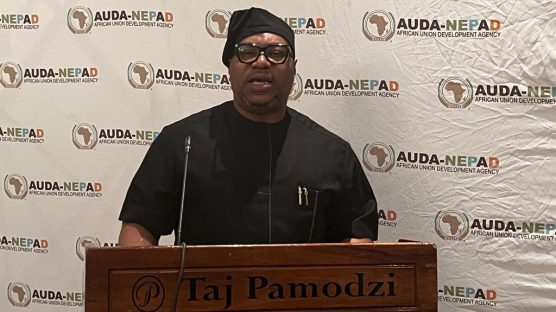An international governance and development expert, Mr. Tagbo Agbazue, has called for increased private sector investment in Africa’s health sector to attain Universal Health Coverage (UHC) on the continent.
Agbazue made the call in an interview on Wednesday in Abuja.
The development expert’s response followed a two-day African Leadership Meeting (ALM) in Lusaka with the theme “Private Sector Investment in Health and Health Financing.”
The ALM is a high-level meeting organized by the African Union Development Agency-NEPAD (AUDA-NEPAD), in partnership with the African Union Commission, the World Health Organization, UNAIDS, and other global and continental partners.
Agbazue explained that participants at the meeting agreed that enhancing private sector investment in health was crucial for African citizens as well as the continent’s long-term growth, sustainability, and competitiveness.
He added that health sector investment was important to preclude the growing loss of African capital through medical tourism while providing Africans have timely access to sophisticated medical treatment and opportunities for job creation.
He said “private sector involvement in health systems is growing in scope, and it includes the provision of health-related services, medicines and medical equipment and products through manufacturing, financial products, and training for the health workforce.
“Many of these activities provide opportunities for economic growth through job creation for Africa’s growing youthful population.”
He also said that experts at the Lusaka meeting recommended strengthening the environment through policy, legislation, and regulation for supporting private sector investment in health was crucial.
“Governments need to provide the requisite infrastructure and logistics, such as road networks, energy, and electricity, to ensure long-term integrated national sector-specific strategies for the health sector.
“This should be with clear roles for the private sector that don’t change with each in-coming minister or administration. “Also, incentive programmes for private sector investment in health like access to land, tax breaks, subsidies, and interest rates should not be abused.
“Governments should also provide opportunities for public-private sector dialogue and promote public-private partnerships (PPP) and joint initiatives such as government social health insurance and private insurance working collaboratively.
“The private sector investment in health will also provide jobs for young people and women.”
Agbazue said that the meeting also recommended that African governments domesticate the principles of the Africa Continental Free Trade Area Agreement (AfCFTA) regarding free movement of people, goods, and services.
On the role of the private sector in the attainment of UHC, he said that compliance with legislation, regulations, and policies was highly essential.
He added that responsible private sector investment with an emphasis on social and environmental performance in addition to generating a good return on investment was also important.
“Private sector in health should focus on people, planet and profits, involvement in government planning with opportunities for public-private sector dialogue.
“There is also the need for joint initiatives and innovation that contextualize global best practices to suit local realities to obtain world-class results.
“The private sector should ensure commitment to growth in the long term, avoid rent-seeking and corrupt practices, and ensure business-to-business platforms, including south-south and south-north.”
The expert also said that development finance institutions (DFIs) and banks should lend a hand by developing financial products and facilities for private sector investment in health.
This, he said, should include equity, grants, facilities, and good de-risking and insurance instruments.
“They should provide affordable loans and innovative products and facilities, such as contextualizing global standards to suit local realities.”
Agbazue said that the timing of the ALM was perfect, as it set the stage for a consultative meeting for Central and Western Africa to be held in Abuja in January 2024.
He also said that the Kigali Health Conference, scheduled for February 2024 with the theme “Sustaining the HIV Response through Financing and Investing in Africa’s Health Systems for Improved Health Security on the Continent” would be informed by the recommendations of these meetings.


